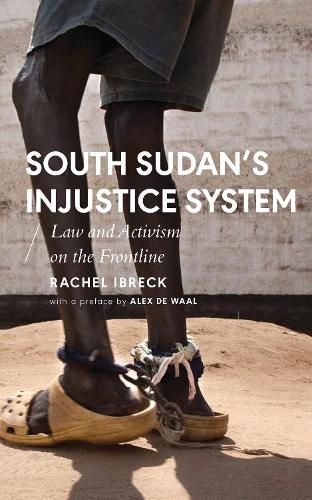Readings Newsletter
Become a Readings Member to make your shopping experience even easier.
Sign in or sign up for free!
You’re not far away from qualifying for FREE standard shipping within Australia
You’ve qualified for FREE standard shipping within Australia
The cart is loading…






Coming into existence amid a wave of optimism in 2011, South Sudan has since slid into violence and conflict. Even in the face of escalating civil war, however, the people of the country continue to fight for justice, despite a widespread culture of corruption and impunity. Drawing on extensive new research, Rachel Ibreck examines people’s lived experiences as they navigate South Sudan’s fledgling justice system, as well as the courageous efforts of lawyers, activists, and ordinary citizens to assert their rights and hold the government to account.
In doing so, the author reveals how justice plays out in a variety of settings, from displacement camps to chiefs’ courts, and in cases ranging from communal land disputes to the country’s turbulent peace process. Based on a collaborative research project carried out with South Sudanese activists and legal practitioners, the book also demonstrates the value of conducting researching with, rather than simply about those affected by conflict. At heart, this is a people’s story of South Sudan - what works in this troubled country is what people do for themselves.
$9.00 standard shipping within Australia
FREE standard shipping within Australia for orders over $100.00
Express & International shipping calculated at checkout
Coming into existence amid a wave of optimism in 2011, South Sudan has since slid into violence and conflict. Even in the face of escalating civil war, however, the people of the country continue to fight for justice, despite a widespread culture of corruption and impunity. Drawing on extensive new research, Rachel Ibreck examines people’s lived experiences as they navigate South Sudan’s fledgling justice system, as well as the courageous efforts of lawyers, activists, and ordinary citizens to assert their rights and hold the government to account.
In doing so, the author reveals how justice plays out in a variety of settings, from displacement camps to chiefs’ courts, and in cases ranging from communal land disputes to the country’s turbulent peace process. Based on a collaborative research project carried out with South Sudanese activists and legal practitioners, the book also demonstrates the value of conducting researching with, rather than simply about those affected by conflict. At heart, this is a people’s story of South Sudan - what works in this troubled country is what people do for themselves.